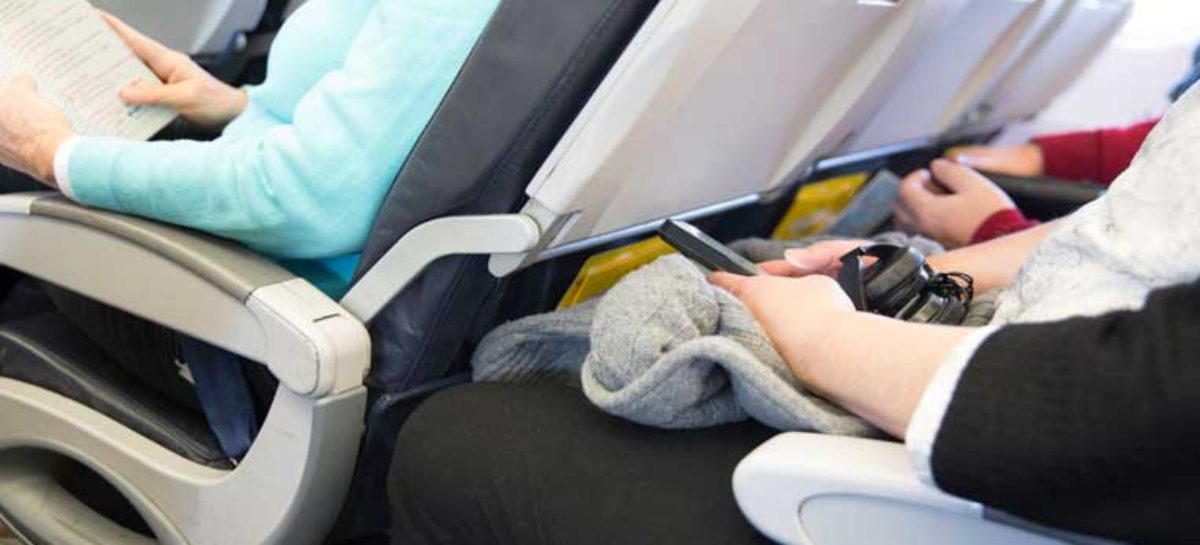Are you one of those who frequently travel long distance?
If yes, make sure you read on!
If you travel for a long period of time in a cramped space with insufficient leg room, as is common during air travel, you are likely to be at risk for developing blood clots.
If you travel for more than four hours, then you may be at risk of developing Deep Vein Thrombosis (DVT), also known as “economy class syndrome”, which is the formation of blood clot in a deep vein of the leg. It is a fairly common occurrence among long distance air travelers, especially those who travel in the economy class. DVT can also occur in those who travel by any mode of transport, be it car, bus or train, for four hours or more. The longer you travel, or, the longer you remain without movement, the greater is the risk of developing DVT. The condition can be very risky and may even prove to be fatal in some.
There are deep veins in the body that are not easily visible through the surface of the skin. It is in these veins that a blood clot can form when you travel long distance without leg space. Very often the clot resolves on its own. However, you are at great risk if the blood clot breaks and finds its ways to the lungs, where it can create a blockage, resulting in a fatal condition called Pulmonary Embolism.
If you are one of those frequent flyers travelling long-distance, or if you travel long, by bus or car, there is no need for panic. For most travelers, the risks are very small; also, there are ways and means to reduce them. Therefore, it will be good for you to know the risks involved in long-distance travel and be aware of the factors that increase your risks of developing a blood clot.
Who Are at Risk?
- Those above the age of forty years
- Obese individuals
- Those who’ve had a recent surgery or suffered an injury
- Those who use estrogen-containing contraceptives for birth control
- Individuals undergoing hormone replacement therapy (HRT) for menopause.
- Pregnant women
- Those who’re in their post partum period ( within six weeks after giving birth)
- Cancer patients , especially, those with the active form of the disease
- Individuals undergoing chemotherapy
- Those with a history of blood clots in the family
- Individuals leading a sedentary life
- Those with varicose veins or with inserted catheters
The greater the number of risks factors, greater is your chance of developing a blood clot during travel. Therefore, you need to protect yourself and towards this, it is important that you learn to recognize the symptoms of blood clot.
Common symptoms of DVT
- Swelling in the leg / arm
- Warm skin
- Redness on the skin
- Pain or tenderness
If you show any of these symptoms, make sure you see a doctor. Please be aware that you may develop pulmonary embolism without showing any sign of DVT.
Tips to reduce risks of long distance travel
- Those who are at risk of developing blood clots must consult your doctor before undertaking long distance travel
- Recognize symptoms of DVT. Be alert.
- Move your legs frequently during long travels. This helps to increase blood flow.
- Try to straighten or extend your legs whenever possible during travel. You may do small exercises or activities that will help to increase blood circulation in your legs
- You may even wear compression stockings ( after doctor consultation)
- Take your medications – anticoagulants or blood thinners – advised by doctors, without fail
Kauvery Hospital is globally known for its multidisciplinary services at all its Centers of Excellence, and for its comprehensive, Avant-Grade technology, especially in diagnostics and remedial care in heart diseases, transplantation, vascular and neurosciences medicine. Located in the heart of Trichy (Tennur, Royal Road and Alexandria Road (Cantonment), Chennai, Hosur, Salem, Tirunelveli and Bengaluru, the hospital also renders adult and pediatric trauma care.
Chennai – 044 4000 6000 • Trichy – Cantonment – 0431 4077777 • Trichy – Heartcity – 0431 4003500 • Trichy – Tennur – 0431 4022555 • Hosur – 04344 272727 • Salem – 0427 2677777 • Tirunelveli – 0462 4006000 • Bengaluru – 080 6801 6801



